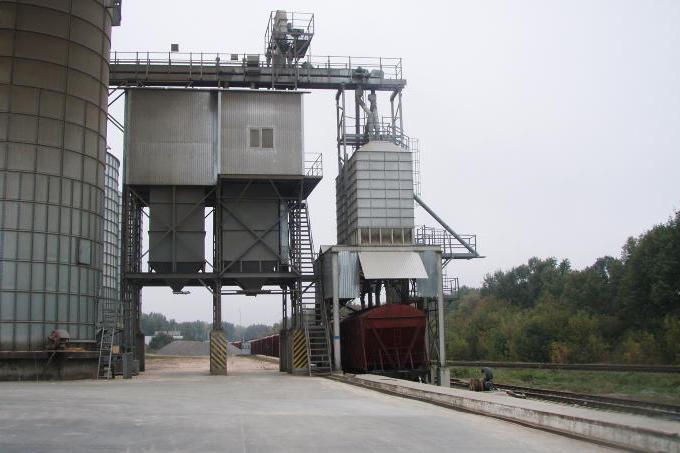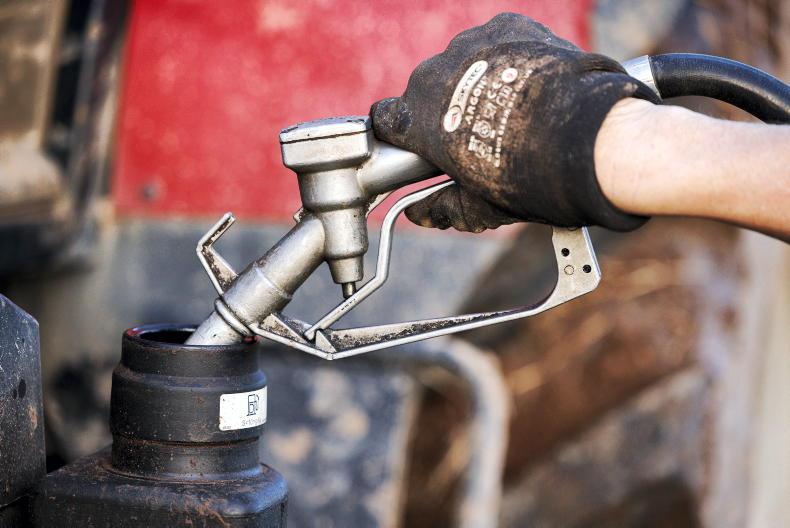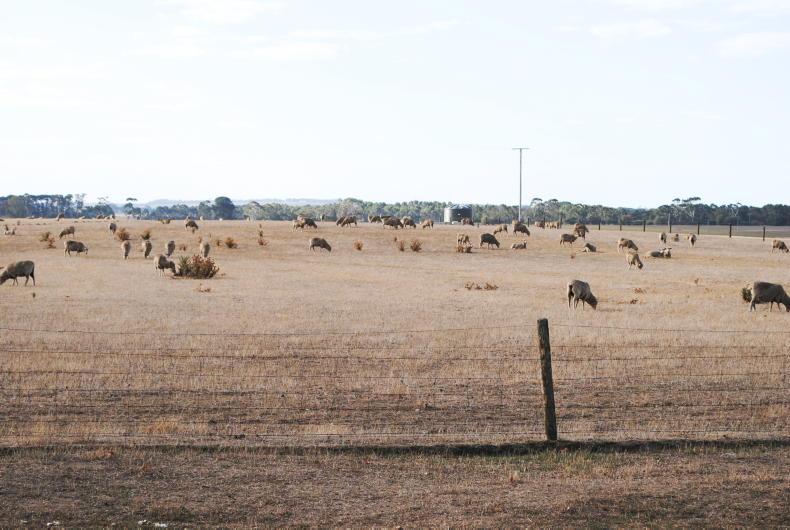Reports indicated that 60 to 80 ships were trapped in Ukrainian ports when the war started.
The internationally negotiated sea corridor through the Black Sea to facilitate the export of grains has now seen over 30 of these ships sail away with cargoes of grains and oilseeds.
However, the corridor is not seen as a perfect solution, because shippers are having to endure very high insurance premiums and now Ukrainian farmers are having to decide on the crop options that make sense for them and their country for the year ahead.
Both production resources and storage capacity are very real issues and international trade experts have called for further international support to help Ukrainian farmers.
So far, an estimated 600,000t have been moved to the global market, but the pace of shipping would have to increase massively to free up resources internally, as only a few of the many ports are currently covered by the trade agreement.
War zone
It is becoming increasingly evident that shipping companies are reluctant to dock in a war zone.
While there are now reports that ships are actually going into these ports to be loaded, this is for deals that were done prior to the invasion.
But now it seems that many shippers are quite reluctant to enter into new sale contracts where war is or might be an issue.
Shippers are still fearful that decisions could be taken that affect normal port activities
Some commentators suggest that traders do not trust the Russians and are fearful that unanticipated actions could again bring trade to a halt. There are now reports that this is also an issue for Russian grain exports.
While there is no war activity around these, shippers are still fearful that decisions could be taken that affect normal port activities.
While the market has always been able to factor in risk premia for specific high-risk destinations, not every shipping company is willing to be involved.
Reports indicate that a few shipping companies are willing to serve Ukraine because they know there are risk premiums in the market.
This means that shipping costs will be higher than in neighbouring 'peaceful' countries, such as Romania or Bulgaria.
Insurance costs
Still, the longer the grain corridor can continue without incident, the more that ships are likely to want to return to Ukrainian ports.
Commentators say that when the grain corridor agreement was signed, insurance companies expected that insurance premiums would be 4% to 5% of the ships' market value for a seven-day period.
However, these premiums are now down to 1% to 1.5%, but that still costs an average of $200,000 to $270,000 per week.

The movement of grain from rural to port silos will be critical to securing adequate storage for the new maize crop in Ukraine.
Put another way, it is estimated that it costs roughly $10,000 more per day to hire a ship to export grain from Ukraine than from Romania.
On top of this, compulsory inspections in Istanbul mean that shipowners are now charging Ukrainian exporters for an additional seven to nine days for the journey time.
The combination of all these additional costs mean that grain ex-Ukraine is estimated to cost an additional $25/t to $35/t more than if it originated from Romania.
Ultimately, these additional costs are decreasing prices for Ukrainian farmers and these will now influence land use decisions.
While risk premiums have also increased for Russian ports since the invasion, Russia still holds a stronger hand in the market to disadvantage Ukrainian produce.
Storage capacity
While the wheat harvest is now virtually completed, concerns continue within Ukraine as to the availability of adequate storage capacity for the upcoming September/October maize harvest.
It is estimated that around 18 million tonnes of grains from last harvest remain in Ukrainian silos and this could leave space very tight for the current crop unless there are adequate exports.
Some suggest that storage capacity could be up to 10mt deficit.
There have been varying recent calls for international help to lessen the cost of insurance and possibly also the provision of temporary storage capacity for small farms.
If farmers in Ukraine opt for lower yielding crops such as oilseed rape and sunflower, this would do nothing to improve global food security in the medium term, which was the reason for the international transport deal.
Reports indicated that 60 to 80 ships were trapped in Ukrainian ports when the war started.
The internationally negotiated sea corridor through the Black Sea to facilitate the export of grains has now seen over 30 of these ships sail away with cargoes of grains and oilseeds.
However, the corridor is not seen as a perfect solution, because shippers are having to endure very high insurance premiums and now Ukrainian farmers are having to decide on the crop options that make sense for them and their country for the year ahead.
Both production resources and storage capacity are very real issues and international trade experts have called for further international support to help Ukrainian farmers.
So far, an estimated 600,000t have been moved to the global market, but the pace of shipping would have to increase massively to free up resources internally, as only a few of the many ports are currently covered by the trade agreement.
War zone
It is becoming increasingly evident that shipping companies are reluctant to dock in a war zone.
While there are now reports that ships are actually going into these ports to be loaded, this is for deals that were done prior to the invasion.
But now it seems that many shippers are quite reluctant to enter into new sale contracts where war is or might be an issue.
Shippers are still fearful that decisions could be taken that affect normal port activities
Some commentators suggest that traders do not trust the Russians and are fearful that unanticipated actions could again bring trade to a halt. There are now reports that this is also an issue for Russian grain exports.
While there is no war activity around these, shippers are still fearful that decisions could be taken that affect normal port activities.
While the market has always been able to factor in risk premia for specific high-risk destinations, not every shipping company is willing to be involved.
Reports indicate that a few shipping companies are willing to serve Ukraine because they know there are risk premiums in the market.
This means that shipping costs will be higher than in neighbouring 'peaceful' countries, such as Romania or Bulgaria.
Insurance costs
Still, the longer the grain corridor can continue without incident, the more that ships are likely to want to return to Ukrainian ports.
Commentators say that when the grain corridor agreement was signed, insurance companies expected that insurance premiums would be 4% to 5% of the ships' market value for a seven-day period.
However, these premiums are now down to 1% to 1.5%, but that still costs an average of $200,000 to $270,000 per week.

The movement of grain from rural to port silos will be critical to securing adequate storage for the new maize crop in Ukraine.
Put another way, it is estimated that it costs roughly $10,000 more per day to hire a ship to export grain from Ukraine than from Romania.
On top of this, compulsory inspections in Istanbul mean that shipowners are now charging Ukrainian exporters for an additional seven to nine days for the journey time.
The combination of all these additional costs mean that grain ex-Ukraine is estimated to cost an additional $25/t to $35/t more than if it originated from Romania.
Ultimately, these additional costs are decreasing prices for Ukrainian farmers and these will now influence land use decisions.
While risk premiums have also increased for Russian ports since the invasion, Russia still holds a stronger hand in the market to disadvantage Ukrainian produce.
Storage capacity
While the wheat harvest is now virtually completed, concerns continue within Ukraine as to the availability of adequate storage capacity for the upcoming September/October maize harvest.
It is estimated that around 18 million tonnes of grains from last harvest remain in Ukrainian silos and this could leave space very tight for the current crop unless there are adequate exports.
Some suggest that storage capacity could be up to 10mt deficit.
There have been varying recent calls for international help to lessen the cost of insurance and possibly also the provision of temporary storage capacity for small farms.
If farmers in Ukraine opt for lower yielding crops such as oilseed rape and sunflower, this would do nothing to improve global food security in the medium term, which was the reason for the international transport deal.











SHARING OPTIONS